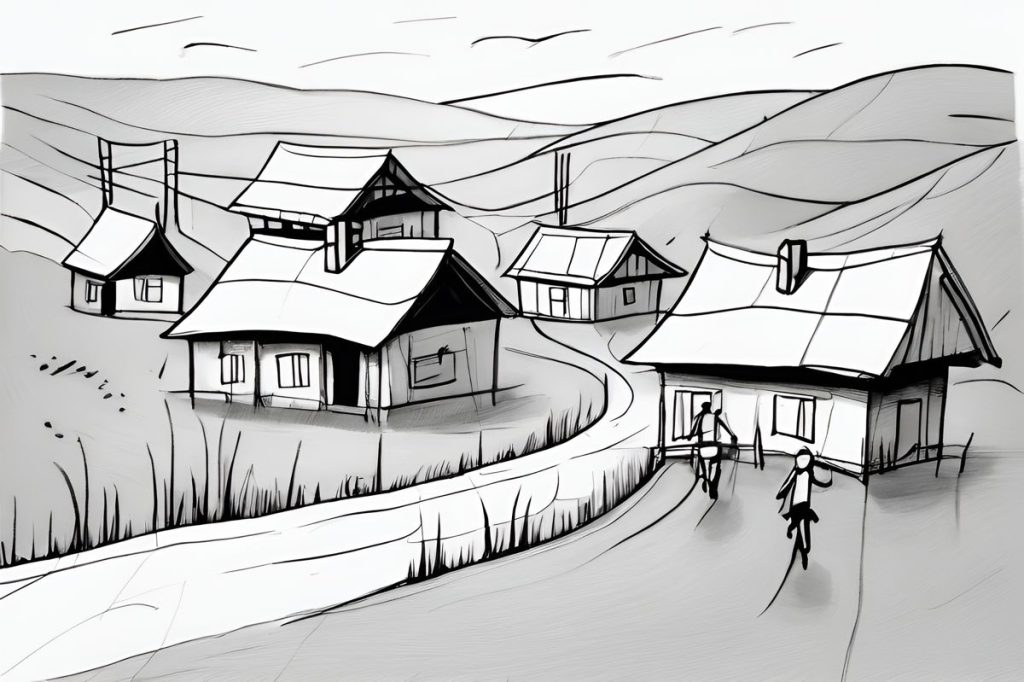The recent reforms in Northern Cyprus have made it easier for Greek Cypriots and Maronites to return to their ancestral villages. With streamlined criteria allowing entire families to resettle and updated residency requirements offering flexibility, these changes aim to support the elderly and promote unity and reconciliation on the island.
What recent changes have been made to ease the resettlement process for Greek Cypriots and Maronites in Northern Cyprus?
- The government has streamlined the criteria for resettlement, now allowing entire families to reclaim their place if one spouse is from specific villages.
- Residency requirements have been updated, offering flexibility in the number of nights spent in the villages.
- Financial support has been extended to couples over 75 years old, easing the financial burden for the elderly.
Easing Resettlement Criteria
The government has recently taken a significant step to ease the process for Greek Cypriots and Maronites looking to resettle in their ancestral villages in the north of Cyprus. As of this Tuesday, the criteria for resettlement have been streamlined, particularly affecting the villages of Rizokarpaso and Ayia Triada, predominantly inhabited by Greek Cypriots, as well as Karpasha and Kormakitis, where Maronite communities continue to reside.
Previously, stringent requirements had restricted many families from returning to their roots. However, under the new provisions, if one spouse originates from any of the four mentioned villages, the entire family is now eligible to reclaim their place in these communities. This change represents a significant shift in policy, aiming to overcome barriers that have previously kept families divided between the north and south.
Flexibility in Residency Requirements
In addition to the updated criteria, the government has made amendments to the residency requirements that dictate the number of nights resettled individuals must spend in the villages. While the minimum stay of four nights per week remains, there is newfound flexibility as these nights no longer need to be consecutive. Residents can choose to spread their stay across weekends or weekdays, which grants a level of convenience that acknowledges and respects the complex daily lives and schedules of those affected.
This adjustment is particularly beneficial for individuals who maintain professional and family commitments in the Republic, such as parents with children attending educational institutions in the south. Not only does this foster better professional and familial ties, but it also supports a more sustainable model of resettlement, where individuals can balance their responsibilities while reconnecting with their heritage.
Financial Support for the Elderly
In a further bid to support the resettlement process, the government has recognized the unique challenges faced by the elderly. As a result, the financial allowance of €240 previously provided only to single individuals living in these villages has been extended to include couples over the age of 75. This initiative aims to alleviate some of the financial burdens faced by older residents and ensure that they can live with the dignity and support they deserve.
Social Welfare Deputy Minister Marilena Evangelou has emphasized that these changes are designed to ease the lives of those who have resettled. By taking into account the various needs of the population, the government demonstrates its commitment to creating a more inclusive and supportive environment for all Cypriots.
Population Impact and Future Prospects
The government’s efforts to simplify the resettlement process have the potential to significantly impact the lives of Greek Cypriots and Maronites in northern Cyprus. With 259 individuals already taking advantage of the opportunity to resettle, these changes could encourage even more to follow suit.
The move is seen as a step toward fostering unity and reconciliation on the island, allowing people to return to their ancestral homes and rebuild their lives in the communities they were once forced to leave. The government’s actions are reflective of an understanding that easing resettlement criteria not only benefits individuals and families but also contributes to the overall healing and progress of the nation.
What recent changes have been made to ease the resettlement process for Greek Cypriots and Maronites in Northern Cyprus?
- The government has streamlined the criteria for resettlement, now allowing entire families to reclaim their place if one spouse is from specific villages.
- Residency requirements have been updated, offering flexibility in the number of nights spent in the villages.
- Financial support has been extended to couples over 75 years old, easing the financial burden for the elderly.
How do the new residency requirements offer flexibility for Greek Cypriots and Maronites resettling in Northern Cyprus?
The updated residency requirements allow individuals to choose when they spend their four required nights in the villages, offering flexibility in scheduling to accommodate professional and family commitments in the Republic of Cyprus. This change acknowledges the complex daily lives of those resettling and aims to support a sustainable resettlement model.
What financial support is now available to elderly couples resettling in Northern Cyprus?
Couples over the age of 75 are now eligible for a financial allowance of €240, previously provided only to single individuals living in specific villages. This support is designed to alleviate financial burdens faced by older residents and ensure they can live with dignity and the necessary support.
How do the recent resettlement reforms impact the population and future prospects in Northern Cyprus?
The recent reforms aimed at easing the resettlement process have already seen 259 individuals take advantage of the opportunity to return to their ancestral villages. These changes have the potential to foster unity, reconciliation, and progress on the island, allowing individuals and families to rebuild their lives and contribute to the overall healing of the nation.

